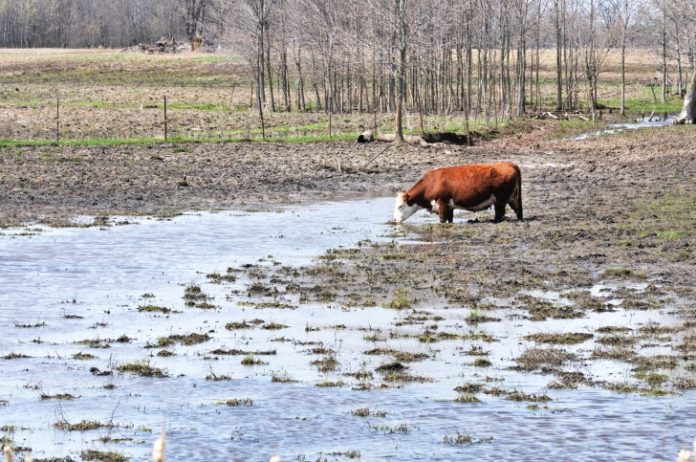The Biden Administration has formally proposed regulations rescinding Trump-era Navigable Waters Protection (NWP) Rule and restoring and expanding upon the Obama-era Environmental Protection Agency’s (EPA) expansive definition of the federal government’s control of wetlands under the 1972 Clean Water Act
The Obama-era “Water of the United States” (WOTUS) rule, was bitterly opposed by agricultural and commercial interests for writing the word ‘navigable,’ as in Navigable Waters of the United States,” out of the Clean Water Act.
Obama’s WOTUS rule excesses
Biden’s November 18, 2021 action revives the controversy over the WOTUS rule, which began when it was first proposed in 2015 by the EPA.
Action from two separate federal courts prevented WOTUS from ever taking nationwide effect.
The state of Texas, two other states, and 18 private organizations, for example, the American Farm Bureau Federation, the American Petroleum Institute, the National Association of Home Builders, and the National Association of Manufacturers, brought a lawsuit challenging WOTUS in a federal district court in Galveston, Texas.
District judge George Hanks, Jr. ruled for the plaintiffs stating that the WOTUS rule violated the 1946 Administrative Procedure Act by preventing interested parties from commenting on the studies that served as the rule’s technical basis.
Judge Hanks also determined the Obama Administration violated the APA by adopting a revised definition of “waters of the United States” in its final rule without public input, that was different from the proposed rule definition of “adjacent waters,” The revised rule was based on the mere proximity of a piece of land to a water of the United States, not biological or hydrological characteristics of the land.
In a second case challenging WOTUS brought ten states led by Georgia, federal district judge Lisa Godbey Wood, of the U.S. District Court for the Southern District of Georgia ruled the government exceeded its lawful authority in promulgating the 2015 WOTUS rule specifically with regard to the “navigable waters” issue.
“Because this broad definition would include waters that have little or no connection to navigable-in-fact waters like the ponds in SWANCC (a previous legal case), the inclusion of all interstate waters violates the significant-nexus test,” said Wood’s ruling.
Trump Administration Revises Water Rule
The upshot of the two court rulings was the WOTUS rule was in effect in 22 states and suspended in the other 28 states.
To ensure consistent application of the law across the nation, and to correct errors found by the two courts, under President Donald Trump the EPA promulgated the NWP rule in January 2020.
The NWP rule removed protections from ephemeral tributaries that only flow during precipitation. It also excluded all ditches, whereas the Obama rule regulated ditches if they flowed year-round.
The 2020 rule covered only lakes and ponds, including artificial lakes and ponds, from which water drains to downstream tributaries or other features. Similarly, the rule applied only to wetlands that directly abut other regulated waters or are separated only by natural berms, banks, dunes, or permeable artificial barriers like dikes, levees, and roads.
Biden WOTUS Reversal
The Trump administration’s NWP rule was also challenged in court and blocked by federal courts in Arizona and New Mexico in 2021.
As a result, the EPA and the U.S. Army Corps of Engineers have been operating under the pre-2015 Clean Water Act.
The Biden EPA wants to restore and build on the Obama-era WOTUS rule, despite two federal courts having previously ruled against it.
Biden officials claim their 290-page proposed “foundational” rule is based on a major effort to build a scientific foundation for re-regulating non-navigable waters while staying within the boundaries outlined in the various federal courts. The EPA claims the proposal maintains longstanding exclusions of the pre-2015 regulations as well as exemptions and exclusions important to the agricultural community.
‘Crippling Effect’
Imposing an expanded WOTUS rule will only invite property rights violation and result in uncertainty and costly red tape, said Sen. Mike Crapo (R-ID) and Sen. Jim Risch (R-ID), in a joint statement castigating the Biden administration’s proposal.
“The Trump-era National Water Protection Rule clearly delineated federal jurisdiction while respecting states’ rights,” said Crapo. “Under the guise of returning to the pre-2015 standard, the Biden Administration will likely implement an even stricter standard than the Obama Administration.
“Effective and environmentally sound water quality management policies are best decided by state and local on-the-ground experts,” Crapo said.
“Regulating a ditch as if it’s a major river would be laughable were it not for its crippling effect on Idaho’s farmers, ranchers, and landowners,” said Risch. “The Navigable Waters Protection rule signaled a restoration of common sense.
“Rolling back this policy means more red tape, confusion, regulatory costs, and an even more bloated and powerful federal government,” Risch said.
The Biden administration is focused on growing the power of radical environmentalists over peoples’ lives, says Craig Rucker, president and co-founder of the Committee For A Constructive Tomorrow, which co-publishes Environment & Climate News.
“It is clear by his actions to get the U.S. back in the Paris accord, push a radical 30×30 land grab, and use an “infrastructure” bill to finance Green New Deal initiatives, President Biden has sold his soul to the most radical elements of the environmental movement,” Rucker said. “We can expect whatever he puts forward to redefine “navigable waters” under WOTUS will also be to the liking of eco-extremists, with little to no regard for farmers, ranchers and property owners.”
Duggan Flanakin (dflanakin@gmail.com) writes from Austin, Texas.


























